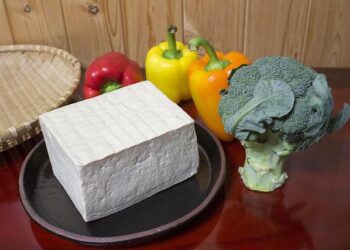$3.5billion
worth of Chinese goods entered Paraguay in 2017
Paraguay is the only South American nation to recognise Taiwan. This status does not prevent Chinese firms exporting to Paraguay. In 2017, US$3.5 billion worth of Chinese goods entered the country, principally electronics and textiles, much of which is resold into Brazil,.
However, the main potential Chinese buyers of Paraguayan soy and meat products are state-owned companies, who strictly adhere to their government’s One China policy.  In 2017, Paraguay exported a meagre US$25 million worth of goods to China, mainly wood and leather products, making the country’s trade-deficit with China the largest in Latin America, in relative terms.
Soy journey
Paraguay soybeans, which are famed for their high protein content, do find their way, indirectly, to China, after they have been processed into oils or pellets in Argentine agribusiness hub Rosario. But China remains closed to Paraguayan beef, two thirds of which end up in Russia and Chile.
The effects of a major drought at the beginning of the year and the intensification of the US-China trade dispute, which resulted in cheaper US soy gaining market share in Paraguay’s traditional export destinations, have hurt Paraguayan agricultural production.
Paraguay has paid a “Taiwan cost” far greater than the perceived benefit of external aid and investment
In the first nine months of 2019, soybean exports fell 16% to 4.65 million tonnes, leading the head of the soybean association to urge the Paraguayan government to improve trade ties with China. Such a move could have long term benefits, but the culling of over 200 million Chinese pigs to swine flu means that Chinese demand for soybeans has plummeted in 2019.
Chinese demand for beef remains robust, however. “Following the drought and the effect on production, ranchers are looking for better prices to compensate,” says Gustavo Rojas, an analyst at the Centre of Analysis and Diffusion of the Paraguayan Economy, a think tank.
“They estimate that they could receive US$,5000 per tonne selling to China, instead of $4,000 per tonne in Chile and Russia.”
Loyalty cost
The potential benefits of the trade put the Paraguayan government in a difficult position. In 1957, the country’s dictator Alfredo Stroessner established ties with Taiwan based on the strong anti-communist agenda of both nations. His Colorado Party has remained in power, bar one spell out of office (2008-2013), since the return to democracy in 1989.
Taiwan has rewarded Paraguay’s loyalty with regular five-year financial aid packages of US$75 million, building the Paraguayan congress building, skyscrapers and housing projects in the process.
However, experts have questioned whether Paraguay is getting a good deal from its association with Taiwan. In a 2017 paper, Francisco Urdinez, a political scientist at the Pontificia Universidad CatĂłlica de Chile estimated that Paraguay was missing out on US$138 million in Chinese investment and $224 million in Chinese development finance each year because of its ties to Taipei.
“Paraguay has paid a “Taiwan cost” far greater than the perceived benefit of external aid and investment from Taiwan as a support for its diplomatic loyalty,” he wrote.
In response, Taiwan doubled its five-year financial aid package to US$150 million in December 2018.
In the past, this aid has often been left unspent as the Paraguayan government has been unable to present well-structured investment programmes, according to Rojas. This appears to be changing, however, with new Taiwanese-funded projects to build housing for those affected by recent floods and for the construction of several viaducts on the periphery of the capital.
3
countries in Latin America and the Caribbean have switched diplomatic allegiance from Taiwan to China since 2016
The US is also keen for Paraguay to remain a firm ally of Taiwan. In the last year the State Department has grown increasingly concerned with China’s growing influence in Latin America.
In 2016 and 2017 Panama, El Salvador and the Dominican Republic switched allegiance from Taipei to Beijing, catching embassy staff off guard and prompting the State Department to call heads of missions from those countries in for questioning.
On October 30, the House of Representatives passed the Taiwan Allies International Protection and Enhancement Initiative (TAIPEI) Act which promises to boost US “economic, security and diplomatic engagement” with countries that strengthen their relations with Taiwan and reduce support for those that “undermine Taiwan.”
With Taiwanese aid and trade becoming more generous, and US foreign policy increasingly concerned about Chinese influence in Latin America, Paraguay’s decision to resist China’s chequebook diplomacy, a result of fading ideological leanings, could have long term economic benefits.
“,”body”:””,”footer”:””},”advanced”:{“header”:”\r\n”,”body”:””,”footer”:””}}”,”gdpr_scor”:”true”,”wp_lang”:”_en”};
/* ]]> */
Source link : https://dialogue.earth/en/business/31546-paraguays-agribusiness-pushes-for-china-market-access/
Author :
Publish date : 2019-11-08 03:00:00
Copyright for syndicated content belongs to the linked Source.











